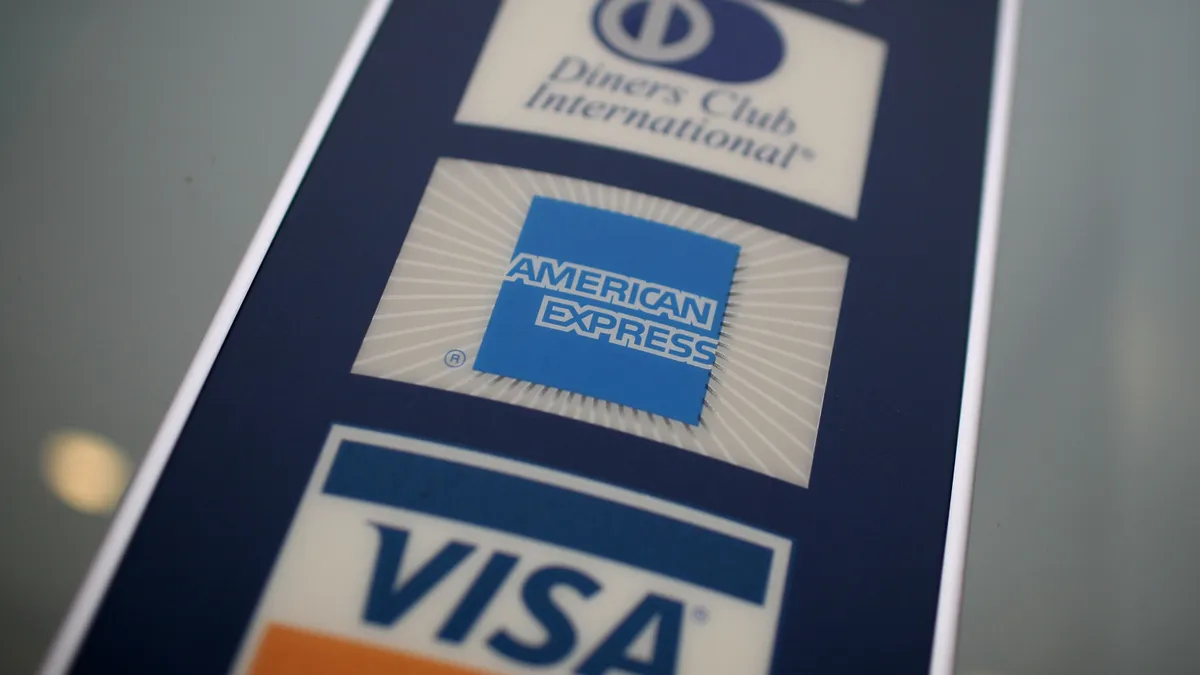Shift4 Payments’ founder and executive chairman, Jared Isaacman, intends to retain his company ownership stake in the payments processor even if he is confirmed to lead NASA, CEO Taylor Lauber said Thursday.
Isaacman was not required to divest his stake under terms of an ethics agreement he signed with the space agency earlier in the year, so he plans to continue on that track, Lauber said during the company’s third-quarter earnings webcast.
“He intends to remain the largest shareholder of the business – this is something he feels passionately about,” Lauber said, referring to Isaacman.
President Donald Trump renominated Isaacman to head up the federal space agency, even though the White House dropped the nominee as a candidate in May. The president didn’t explain this week what changed his thinking about Isaacman’s suitability to run the agency.
Under the prior NASA ethics agreement, Isaacman planned to reduce his voting and ownership interests in the company to 25%, according to a Shift4 proxy filing with the Securities and Exchange Commission in April.
When the president ditched Isaacman as a candidate, he cited Isaacman’s “prior associations” in a social media post. There was also a report in the New York Times that the president’s decision to nix Isaacman’s nomination at that time related to the entrepreneur’s political contributions to some Democrats, including Arizona Sen. Mark Kelly, a former astronaut.
Isaacman likely came to the president’s attention as a candidate for the NASA administrator job because of his association with former Trump ally billionaire SpaceX CEO Elon Musk. Isaacman has previously flown as an astronaut with the space exploration company, purchasing seats on their spacecraft as a customer.
After Isaacman was nominated to lead NASA, he took a step away from his leadership role at Shift4, with the company designating Lauber as his successor. Then, after he was previously cast aside for the NASA role, Shift4 in June named Lauber as CEO and made Isaacman the executive chairman.
Isaacman founded the Allentown, Pennsylvania-based company as a teenager in 1999 and he built the company into a major payments processor for entertainment and sports venues as well as other types of retail merchants, including restaurants.
Even though Isaacman plans to remain the top Shift4 shareholder, he intends to convert his super-voting shares into the more common type held by other shareholders. “It’s likely to simplify our [corporate] structure quite meaningfully,” Lauber said. “He will be relinquishing the super votes associated with his shares, so it likely means a collapse down to a single share class.”
Shift4 operations reach into 75 countries, extending further across the globe thanks to the July closing of its $1.5-billion acquisition of Global Blue, which counts luxury retail accounts among its clients. The third quarter was the first period in which the company reported earnings with the effect of the merger taken into account.
“The performance of the (Global Blue) business has been strong despite volatility, so that's really encouraging,” Lauber said on the webcast. “The year-over-year growth of [the Global Blue segment’s] revenue was about 19%.”
Specifically, the CEO called out volatility in the U.S. across various verticals, including restaurants and hospitality. “In the U.S., the last two weeks of September and subsequent weeks of October, presented more same store sales volatility than we’ve seen in prior periods,” Lauber said. “While not consistent across verticals, same store sales have generally skewed negative to our expectations.”
Still, Lauber noted the company’s increased diversification across industries and geographies help buffer Shift4 against such ups and downs. He also pointed to the October acquisition of Worldline’s Bambora, which added 140,000 merchant accounts, as set to further bolster the Shift4 business with payments volume and talent.
Third-quarter net income, on a GAAP basis, was cut almost in half to $33.4 million, from $72.2 million, but when taking into account the Global Blue impact and other adjustments, the company logged net income of $148 million, up 17% from $126 million in the year-earlier period, according to the earnings report. On a GAAP basis, gross revenue rose 29% to nearly $1.18 billion.





















